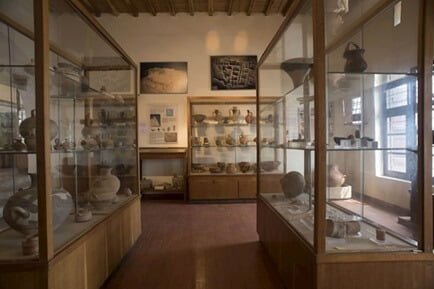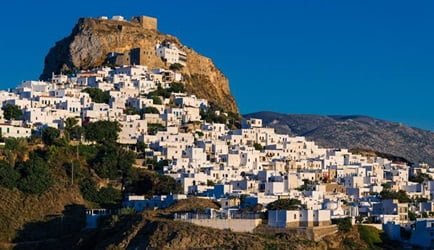
History of Skyros
Named after the porous stones mined from this island, the history of Skyros starts from the Neolithic times. According to Greek Mythology, Achilles was hidden on this island by his mother Thetis, as she knew that Achilles would meet a tragic end if he took part in the Trojan War. Thetis asked for the help of Lycomedes, the king of the island, who kept Achilles in his own castle. Achilles soon fell in love with the beautiful daughter of Lycomedes, Deidamea and gave birth to a son, Pyrros. Odysseus, who knew that the campaign of Troy would never succeed without Achilles, devised a cunning plan and managed to bring Achilles to Troy. As predicted Achilles met his end in Troy, and now it was Pyrros who was needed to win in Troy. Odysseus again managed to bring that very young to Troy and to make him fight bravely.
Another great hero, Theseus is believed to have died on this island, killed by the king of the island Lycomedes, who perceived him as a threat to his throne. Though, under the occupation of Cimon, the remains of Theseus were returned to Athens. The island of Skyros has seen many rulers and civilizations during its term so far. The Pelasgians, who built huge walls as a part of their cities, initially inhabited Skyros. Their walls formed the foundation for the following settlers. At around 475 BC, Cimon took over Skyros and distributed the land among the Athenian aristocrats.
Skyros was controlled by Athens for nearly 400 years. While under the Athenian rule, Skyros was for brief intervals also under the Macedonian occupation around 340 BC. This was followed in 192 BC by the Roman Imperial forces that managed to take control of the island. During this time Philip V of Macedonia returned the island of Skyros back to Athens. After the Roman occupation of the island, it was taken over by the Byzantine Empire. Though the island struggled at the hands of the Byzantine Empire, it eventually recovered and by the 2nd century AD had become a Bishopric, having embraced the Christian region.
Skyros changed hands again in 1204 when the Crusaders captured Constantinople and the island was passed under the Venetian rule, who built a strong fortress to protect Skyros from enemies and pirates. At the end of the 14th century, Skyros was ruled by the Turks, though the lack of any high authority figures made life much more independent during this time. Finally, during the Independence War in 1821 against the Turks, Skyros proved its importance by contributing heavily in terms of manpower and finance and was able to declare its independence to the world in the year of 1829.





